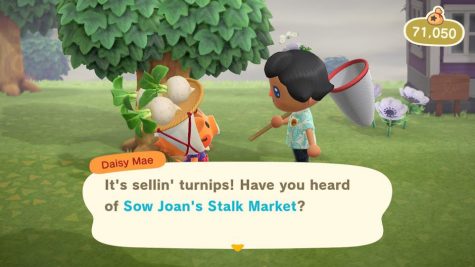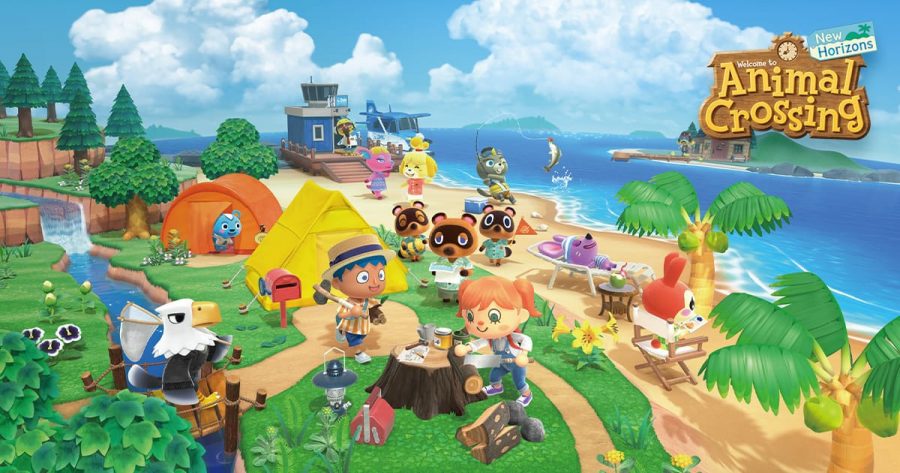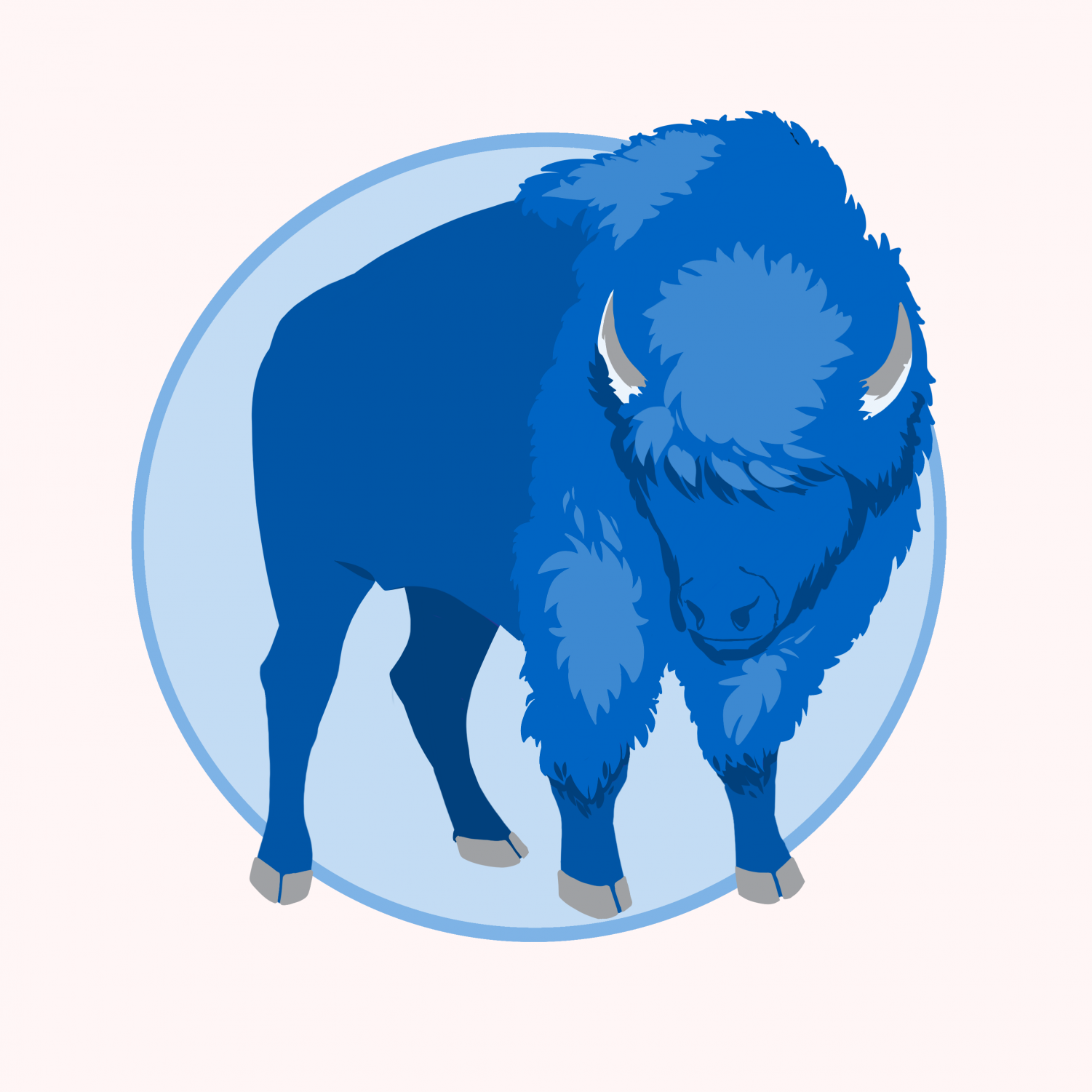Forget the Turnips, Eat the Rich
At first glance, Animal Crossing New Horizons (ACNH) appears to be the perfect zen game. Released at the beginning of the COVID-19 pandemic, ACNH flew off shelves and into the hands of new and returning Nintendo fanatics. In just six weeks, thirteen million copies had been sold, and thus began the Animal Crossing fever.
The reason for the game’s popularity is quite clear. Nintendo advertises ACNH as an island getaway, where you and your artistic license are free to customize your very own island. In a case study analyzing the psychological effects of the game, author Lin Zhu reported that the game “captures people’s instinctive to escape from realistic difficulties and their yearning to chase a peaceful and harmonious life.” Accompanied by cute animals with varying personalities and an endless list of tasks to complete, New Horizons was the distraction that the world needed during the pandemic.
Then you meet the raccoon.
On your first day on the island, you’re greeted by Tom Nook, head of Nook Inc., the island’s development company. He assigns you simple tasks like picking fruit or collecting wood and calls his friend Blathers to build your museum—fully living up to his marketed label as a friendly face. You’re also free to plant tents down for you and your villagers.
Congratulations! You are now in debt, courtesy of the raccoon. He’ll charge you 5,000 Nook Mile Tickets, one of the two forms of currency, for the price of moving into your deserted island. Once the tent cost is paid off, Nook prompts you to upgrade to a house. And so the cycle begins.
As players progress into the game, Tom Nook incessantly lures them with tempting renovations: more inventory space, more neighbors, and more bridges. The raccoon knows that we suffer from overflowing pockets and cramped houses, and he takes full advantage of those inconveniences. As stated by SBNation, Nook “plants a seed in your mind that life could be so much better,” essentially trapping his victims in a merry-go-round of remodeling and paying off an increasing pile of loans.
This endless pattern is why many game critics label New Horizons as a capitalistic utopia. Utopia—an escape from reality, a place of complete freedom. But “freedom is an illusion” in this particular paradise, according to Wired editor James Temperton. “You are put to work in the endless pursuit of what you assume must be some higher purpose,” he claims.
Temperton’s words mirror how some might describe a capitalist system, where the harder you work, the greater the fruits of your labor are. But a closer look at the game reveals further traces of an obvious economic structure.
The most apparent capitalistic feature in New Horizons is its stalk market. It’s a simple way to earn bells, the game’s main form of currency. Every Sunday, players can buy turnips from Daisy Mae, the head of the market, and sell them at Nook’s Cranny for bells. The one pitfall is that prices will vary every day. You might buy turnips for 100 bells on Monday only for the price to plunge the next day to 50 bells. The art of selling turnips is a gamble, much like the real stock market. Only the clever will profit.

Player-made websites, such as Turnip Exchange, fuel the market by allowing devoted turnip traders to visit islands to sell their vegetables when prices rise. According to Digital Trends, participants typically wait 30 to 40 minutes before they are invited to the island.
Aside from Turnip Exchange, avid players have found alternative ways to rake in more money by developing in-game businesses. For example, WeedCo, organized by Tyren Batten, specializes in landscaping—weeding gardens, watering plants, and chopping wood. In an interview with Wired, Batten claims that his team of 38 members completed almost a thousand jobs in just five weeks, showing how high in demand these businesses are.
Other players have taken advantage of the renowned Nookazon website, a fanmade online retailer modeled after Amazon. The site permits people to list DIY recipes and furniture for sale, and even traffic villagers—all in exchange for bells.
The craze to pay debts off quickly goes against what Nintendo intended the game to be. What was supposed to be a relaxing game transformed into an obsessive competition. With Tom Nook trailing you with constant reminders of your bills and social media accounts boasting impressive 900+ hour creations, suddenly your island looks meager. This pressures players to take on more debt to spice up their islands, with some even resort to restarting their game.
The feeling of freedom and success once drew players to New Horizons; now it is their downfall. The lack of a main objective leaves people craving more and ultimately, taking more loans out to rebuild and patch that empty hole. But despite the greedy raccoon and the fluctuating economy, Animal Crossing gives people the chance to virtually travel and meet friends and offers an alternative to pandemic life. It is a refuge for many players.
Perhaps selling your soul to a robber baron is worth it. Nevertheless, beware of the raccoon and his bells.
(she/her/hers)
Claire Kim is a senior and an editor at the Shaker Bison. She is also a member of Tri-M and Wind Ensemble. Outside of school, Claire...



Alexis Adkins • Feb 12, 2021 at 11:11 am
I play Animal Crossings New Horizons and it is an amazing game! It is very relaxing and calming to play, if you need a break, you just “click a button” and enter your dream paradise. ACNH is a very popular game right now, trending all over the world. Act fast if you’re serious! You can also play online with friends and visit each other’s islands!